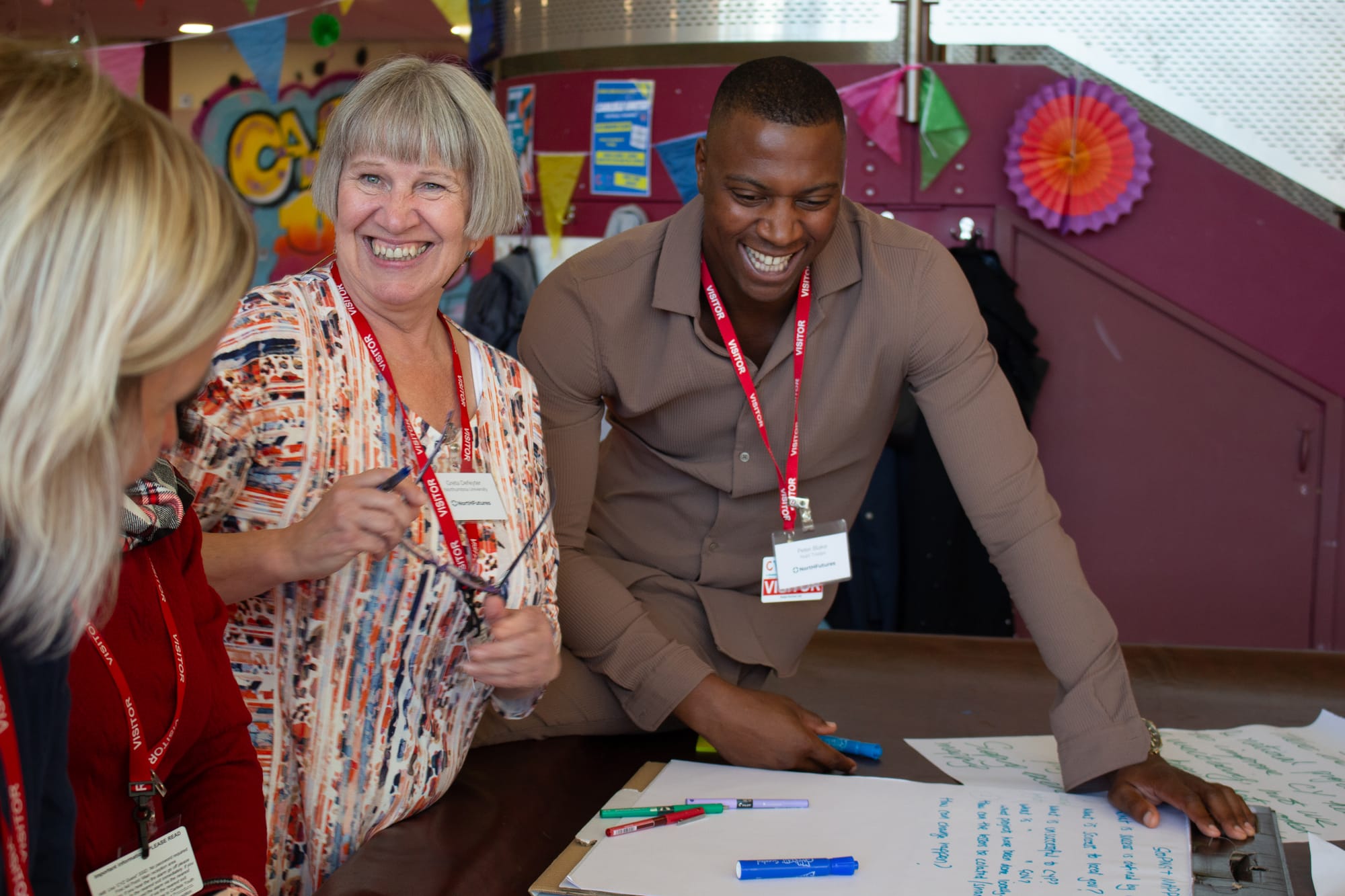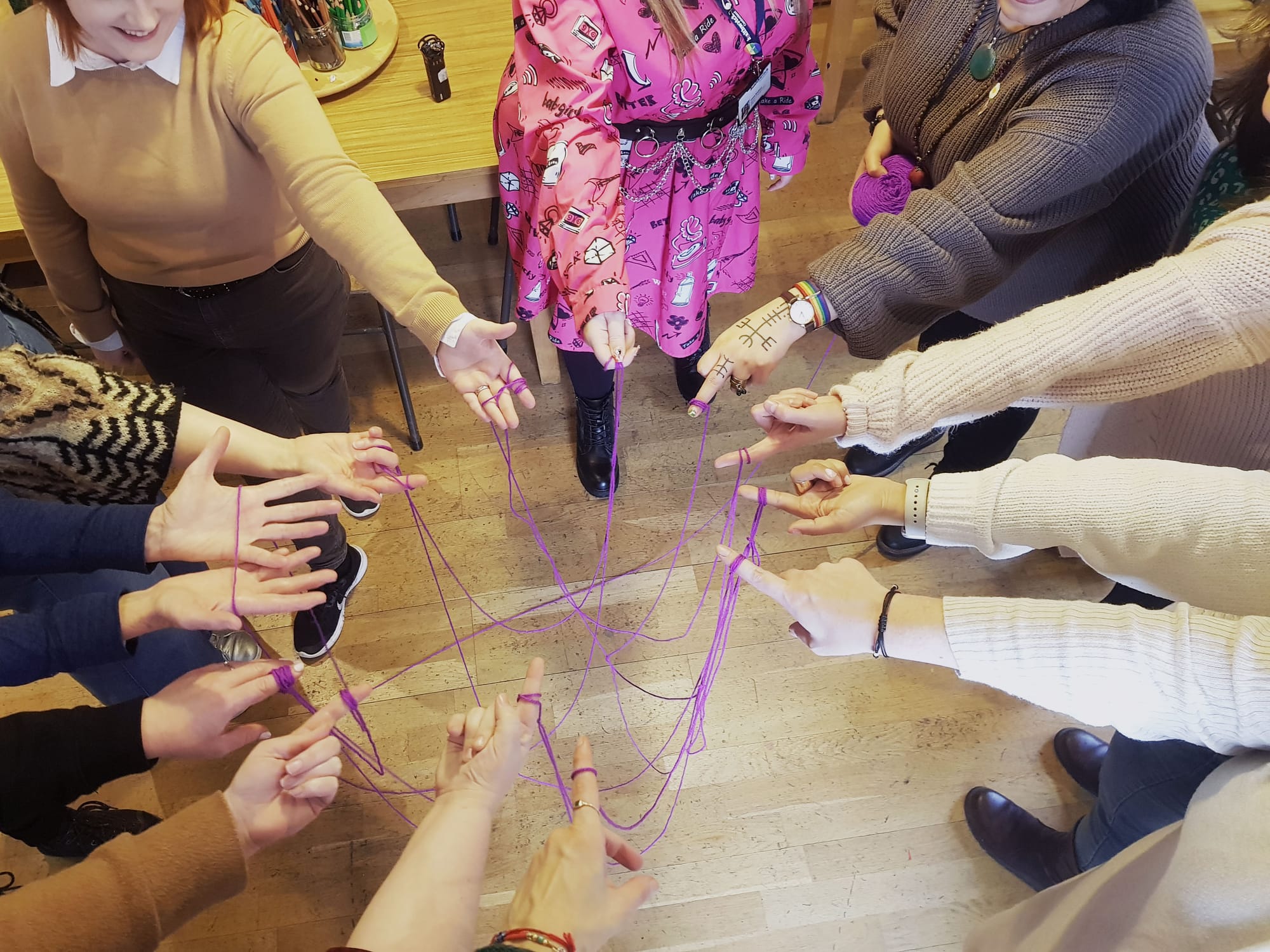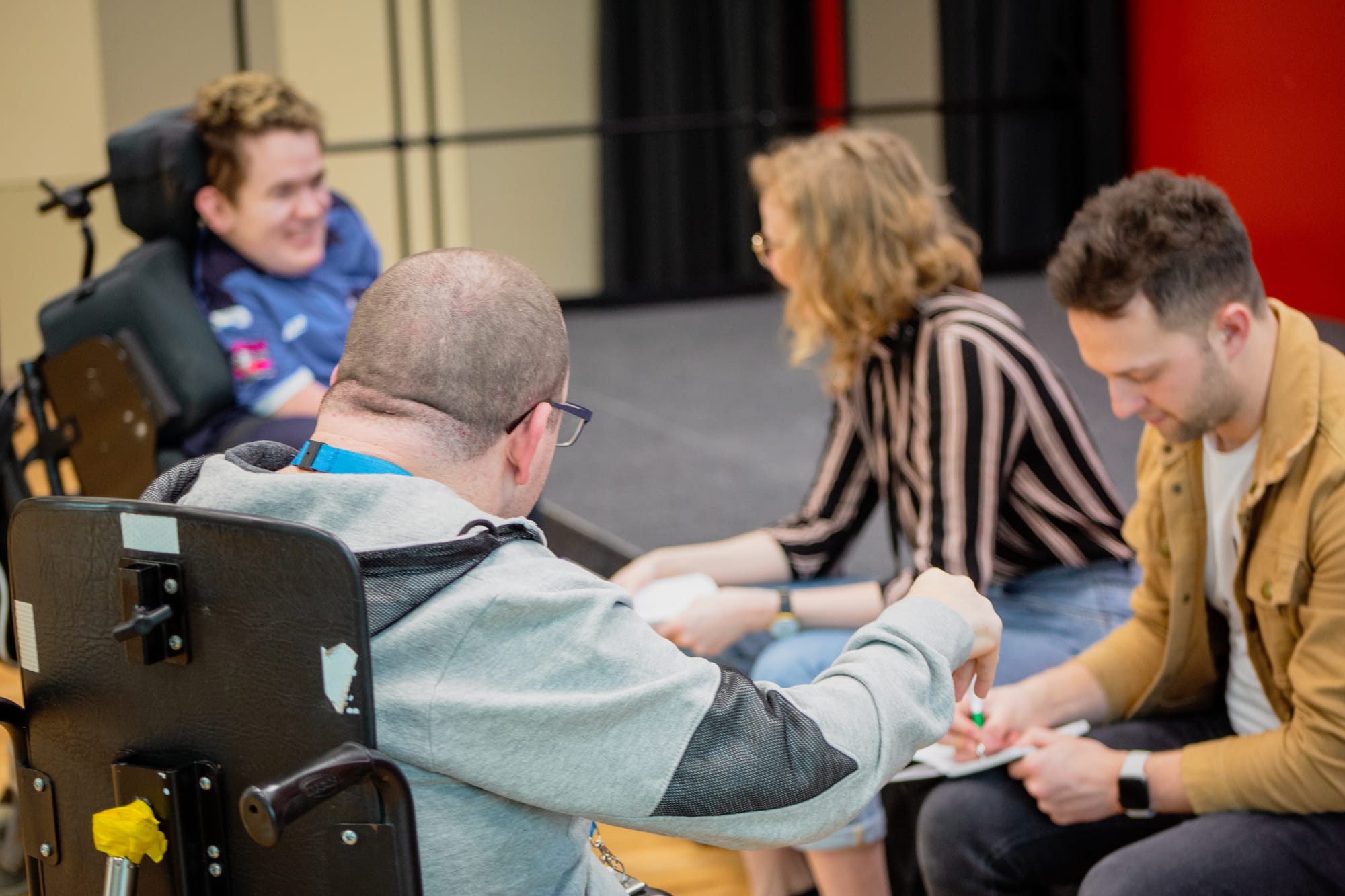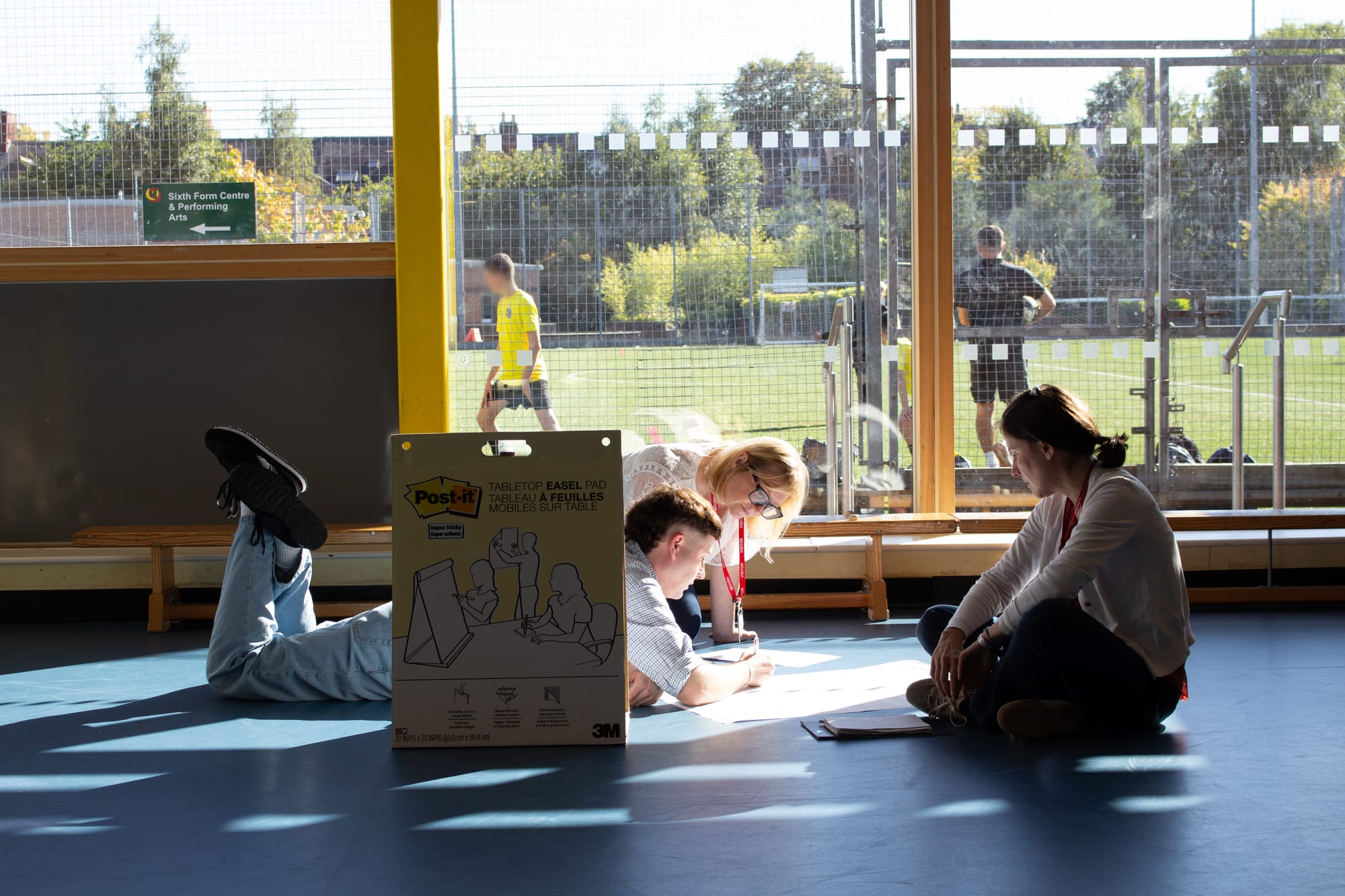People are at the heart of healthcare, possessing invaluable expertise in how the services they use work. By bringing their lived experience to the forefront of research and development, we ensure that new healthcare technologies are designed for the people who will use them.
As part of the NortHFutures project, we are embedding Public and Patient Involvement (PPIE) throughout our activities. We have a NortHFutures ‘Research Involvement Advisory Group’ and a Patient Public Involvement and Engagement (PPIE) group. Both include participation and inclusion experts, patient representatives, and members of the public who advise on research and technology.
Humanising Healthcare
How does PPIE look in practice? We talked to Peter Glick, Participatory Healthcare Researcher for NortHFutures and member of the NortHFutures Research Involvement Advisory Group. Peter did his PhD research by working with a group of carers who manage personal care budgets for themselves or someone they care for.
They designed a wiki for people who manage personal care budgets, including documents such as contracts for staff or health and safety forms. The running of this platform – MyCareBudget – has been taken over by peoplehub, a charity that supports people with their personal health budgets.
Peter used a method called co-creation, where participants with lived experience come up with both the problem and the solution. He supported them in building the technology, but their idea was entirely up to the group he worked with.
In the past, Peter explained, user testing would come in at the end of projects, and by that point, major changes could not be made.
By bringing people in as active participants early in research or product design, researchers can benefit from the breadth of knowledge people with lived experience have, leading to new and innovative ideas. It means people and patients can shape projects and products from the very beginning.
Strategies for Effective PPIE
There are many options to start thinking about how to widen this participation:
Diverse Recruitment: Avoid relying solely on social media platforms like Facebook, which may exclude a significant portion of the population.
Building Trust: Engage with communities to build trust and address any wariness about research.
Clear Communication: Ensure that the language used is accessible and not intimidating for members of the public.
Ethical Considerations: Always consider the ethical implications when working with NHS patients or vulnerable groups such as children or adults.

Challenges in Widening Participation
There are many challenges from both sides about involving the public in design and research. Peter explains that the first hurdle comes when trying to recruit people, “the knee-jerk reaction is to use Facebook, but then you will only get people who use social media, and this excludes a huge part of the population.”
When thinking about Public and Patient Involvement and Engagement (PPIE), there is a challenge in finding people who might be wary of research.
We spoke with Beth Reeves, Health and Wellbeing Coordinator, from VONNE (Voluntary Organisations' Network North East), a partner on the NortHFutures project, was involved in work to design a Community Engagement Toolkit that guides researchers on how they approach community organisations, manage expectations, and create reciprocal partnerships.
The Voluntary, Community and Social Enterprise (VCSE) sector, the public, and researchers can speak differently, and sometimes members of the public can feel intimidated by being involved. Breaking down those barriers and finding a common language can help everyone feel part of the research or design process.
She explained: "Research plays a key role in developing better care, services and treatments for our health and wellbeing, and involving communities can help identify the most important research topics and the best ways of researching them. VCSE organisations play an important role in involving communities in research through their relationships, knowledge and skills in engaging with diverse communities across our region. VONNE's VCSE Research Partnerships support helps VCSE organisations and researchers to connect and work together to form sustainable partnerships."
We also need to consider the ethical implications when working with vulnerable groups or with sensitive topics, these can be covered by working with empathy, putting the participant first rather than the research, and signposting to support groups. These all need to be thought about when designing pathways to PPIE.
How NortHFutures is Widening Participation
Humanising Healthcare is a key part of the work of NortHFutures, and our ethos is centered on broadening participation and ensuring that community and organisational voices are heard.
We take a people-centred approach and are committed to championing equity, participation, and investment across the region.


From workshops engaging new mothers in design and working with wheelchair users to design better wheelchair controls.
We plan to fund £800k worth of projects on the themes of Promoting Health and Nutrition for Children and Young People, Supporting Mental Health and Wellbeing, Developing Digital Surgical Pathways, and Living and Ageing Well with Multiple Long-term Conditions.
All funded projects are required to have a VCSE partner attached, and we have been offering additional support to VCSE partners who wish to participate. Working with our partners such as VONNE helps us start conversations between researchers, the VCSE sector, and members of the public to create an inclusive environment for everyone involved.
Our Research Involvement Advisory Group oversees NortHFutures workstreams and develops strategies to improve PPIE across our initiatives through collaborative research design. By involving not just PPIE but VCSE staff and academics, the Research Involvement Advisory Group seeks a wide range of views to review and improve the work of NortHFutures.
Public and Patient Involvement and Engagement (PPIE) is not just a box to tick; it’s a fundamental shift towards more inclusive and effective healthcare innovation. By embedding PPIE across our work, NortHFutures is committed to ensuring that the voices of patients and the public are heard and valued. Together, we can create healthcare solutions that truly meet the needs of those they are designed to serve.
If you are interested in learning more about PPIE one of our partners Newcastle Health Innovation Partners is running an Introduction to PPIE in Research for Public Contributors on 5 November.
One of the themes of our NortHFutures Digital Health Symposium 2024 on 8 Nov is Ethics and Equity in Digital Innovation. Join us here.

